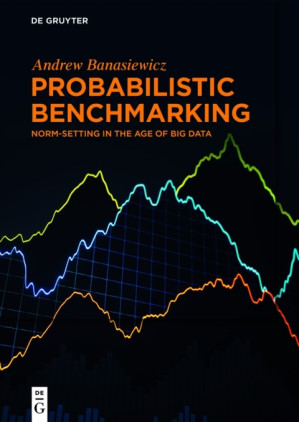English [en], .epub, 🚀/zlib, 4.3MB, 📗 Book (unknown)
Probabilistic Benchmarking: Norm-Setting in the Age of Big Data 🔍
Walter de Gruyter GmbH & Co KG, 1, 2024
Andrew Banasiewicz 🔍
description
What is a ‘good’ outcome? In relation to others, and in relation to the past? Commonly associated with the ideas of benchmarking and baselining, comparative assessment is an important part of organizational management, but this broadly defined undertaking lacks clear conceptual framing and methodological foundations. At the same time, the readily available transactional data make robust tracking and measurement possible at an unprecedented scale, but also accentuate the impact of assessment paradox: To be truly meaningful, exact magnitudes-expressed values often need to be ‘translated’ into qualitative, assessment-laden categories, but that task is impeded by lack of established approaches for doing so. Inspired by these observations, Probabilistic Benchmarking frames the notions of benchmarking and baselining as two complementary but distinct mechanisms of comparative assessment that make use of informational contents of organizational data to contribute unbiased, systematic, and consistent evaluation of outcomes or states of interest. In that general context, this book provides much-needed conceptual and methodological clarity to guide construction and use of benchmarks and baselines, and re-casts the idea of assessment standards in the context of data-derived estimates, to better align the practice of comparative assessment with the emerging realities of the Age of Data. This pioneering research-based but application-minded book bridges the gap between theory and practice. It will greatly benefit professionals, business students and others interested in the broad domain of organizational assessment.
Alternative publisher
Saur, K. G., Verlag. ein Imprint der Walter de Gruyter GmbH
Alternative publisher
düsseldorf university press. in Walter de Gruyter GmbH
Alternative publisher
de Gruyter, Walter, GmbH
Alternative publisher
de Gruyter GmbH, Walter
Alternative edition
Germany, Germany
date open sourced
2024-09-16
🚀 Fast downloads
Become a member to support the long-term preservation of books, papers, and more. To show our gratitude for your support, you get fast downloads. ❤️
- Option #1: Fast Partner Server #1 (recommended) (open in viewer) (no redirect) (short filename) (no browser verification or waitlists)
- Option #2: Fast Partner Server #2 (open in viewer) (no redirect) (short filename)
- Option #3: Fast Partner Server #3 (open in viewer) (no redirect) (short filename)
- Option #4: Fast Partner Server #4 (open in viewer) (no redirect) (short filename)
- Option #5: Fast Partner Server #5 (open in viewer) (no redirect) (short filename)
- Option #6: Fast Partner Server #6 (open in viewer) (no redirect) (short filename)
🐢 Slow downloads
From trusted partners. More information in the FAQ. (might require browser verification — unlimited downloads!)
- Option #1: Slow Partner Server #1 (slightly faster but with waitlist)
- Option #2: Slow Partner Server #2 (slightly faster but with waitlist)
- Option #3: Slow Partner Server #3 (no waitlist, but can be very slow)
- After downloading: Open in our viewer
External downloads
All download options have the same file, and should be safe to use. That said, always be cautious when downloading files from the internet, especially from sites external to Anna’s Archive. For example, be sure to keep your devices updated.
-
For large files, we recommend using a download manager to prevent interruptions.
Recommended download managers: JDownloader -
You will need an ebook or PDF reader to open the file, depending on the file format.
Recommended ebook readers: Anna’s Archive online viewer, ReadEra, and Calibre -
Use online tools to convert between formats.
Recommended conversion tools: CloudConvert -
You can send both PDF and EPUB files to your Kindle or Kobo eReader.
Recommended tools: Amazon‘s “Send to Kindle” and djazz‘s “Send to Kobo/Kindle” -
Support authors and libraries
✍️ If you like this and can afford it, consider buying the original, or supporting the authors directly.
📚 If this is available at your local library, consider borrowing it for free there.
Total downloads:
A “file MD5” is a hash that gets computed from the file contents, and is reasonably unique based on that content. All shadow libraries that we have indexed on here primarily use MD5s to identify files.
A file might appear in multiple shadow libraries. For information about the various datasets that we have compiled, see the Datasets page.
For information about this particular file, check out its JSON file. Live/debug JSON version. Live/debug page.
